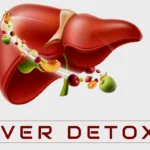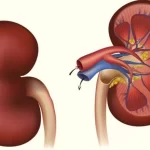kidney biopsy in nephrotic syndrome
A kidney biopsy is the most important test to identify the exact cause and underlying type of nephrotic syndrome. A small sample of kidney tissue is taken in a kidney biopsy and examined in the laboratory by a microscope. Urine testing is extremely important for the diagnosis and treatment of the nephrotic syndrome.
After kidney biopsy Treatment of nephrotic syndrome:
Treatment in nephrotic syndrome is aimed at relieving the patient from symptoms, improving the protein loss in urine, preventing and treating complications and protecting the kidney. Treatment of this disease usually lasts for a long period of several years.
Avoiding diet after kidney biopsy:
If there are swelling and less urination, the patient is advised to take less water and less salt. Most children are advised to take protein in normal amounts. Dietary advice or restriction is very important for the patient. Because effective treatment and proper diet eliminate inflammation.
In the presence of inflammation, patients who have swelling in the body, they should ban dietary salt reduction and table salt. And food that has high sodium content should be banned. Due to which, inflammation and fluids in the body can be prevented from accumulating in the body. Well, there is no need to ban liquids in this disease.
Patients who receive high doses of steroids per day should limit the amount of salt so that there is no risk of increased blood pressure. Patients who have inflammation should be given an adequate amount of protein to compensate for the loss of protein and prevent malnutrition. Adequate calories and vitamins should also be given to the patients. after kidney biopsy.
It is advisable to take a normal, healthy diet during the symptom-free period. In patients with nephrotic syndrome, it is advisable to take a normal, healthy diet during the symptom-free period. Unnecessary dietary restrictions should be removed. Do not restrict salt and liquids. Give a sufficient amount of protein to the patient. If the kidney is a disease, limit the amount of protein. Reduce dietary fat intake to control blood cholesterol levels.
After kidney biopsy Treatment and prevention of infection:
Before the child starts any special treatment of nephrotic syndrome, it is very important to control the infection if the child is suffering from any infection. Children suffering from nephrotic syndrome are more likely to get a cold, fever and other types of infections. Infection during treatment can aggravate the disease. Therefore, it is very important to take complete care to prevent infection during treatment and to get intensive treatment immediately after infection.
After kidney biopsy Treatment by a specific medicine
Steroid therapy
Prednisolone is a standard treatment for relieving symptoms in nephrotic syndrome. This drug has a favorable effect on most children. In 1 to 4 weeks both inflammation and protein in urine disappear. When urine is released from protein, that condition is called remission.
alternative medicine after kidney biopsy
In a small group of children who do not have a favorable effect of steroid therapy, the amount of protein in their urine continuously increases. In this case, further examination of the kidney is needed, such as a kidney biopsy.
They are given alternative medicine such as levamisole, cyclophosphamide, cyclosporine, tacrolimus, mycophenolate, etc. Along with steroids, alternative medicine is also given. When the amount of steroids is reduced, this drug is helpful in maintaining remission.
Inflammation in the nephrotic syndrome can occur repeatedly due to infection, so it is important to be careful not to get an infection.
Adjuvant medicine therapy after kidney biopsy
Diuretics are given to control inflammation and to urinate excessively. Special medicines to control blood pressure and reduce the amount of protein in the urine, such as A. C.E inhibitors and angiotensin receptor blocker drugs are given.
Antibiotics are given to treat the infection. (For infection of bacterial sepsis, peritonitis, pneumonia, etc.) Medications to reduce cholesterol and triglyceride such as statins (simvastatin, atorvastatin, rosuvastatin, etc.) which can prevent the risk of heart and blood vessel problems. Calcium, vitamin D and zinc are given as complementary medicine.
Note: Use of any medicine without consulting a doctor can be harmful to your body, we will not be responsible for it.





